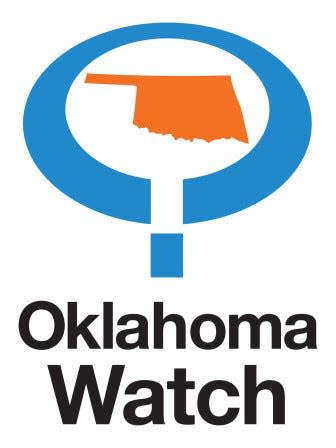Criminal justice reform: Where key bills stand as legislative session winds down
Bills to charge more shoplifting offenses as felonies and mandate lenient prison sentences for domestic violence survivors are in limbo with three weeks to go in the legislative session, but several other criminal justice measures have been signed into law.
Claiming a spike in theft, lawmakers in both chambers approved versions of Senate Bill 1450, which would lower the felony theft threshold from $1,000 to $500. The bill would also increase the theft aggregation period from 90 days to one year and deputize several retail theft officers under the Attorney General’s office.
The measure is pending in a Senate conference committee, where lawmakers look to iron out differences and arrive at a single version of a bill.
Proponents argue the measure is necessary to protect business owners and deter repeat shoplifting offenders. Critics point to state crime data that shows a slight decrease in larceny rates over the past three years and analysis that shows changing the felony theft threshold could cause the state’s prison population to increase.
More: Two killed, many injured Friday in 'group disturbance' at Lawton prison
What to know about SB 1450 and SB 1211
If enacted, SB 1450 would be a partial rollback of State Question 780, the 2016 voter-approved criminal justice reform measure that reclassified several drug and property offenses from felonies to misdemeanors. Oklahoma’s prison population dropped by nearly 20% within five years of the measure taking effect.
Michael Olson, the policy counsel for Oklahomans for Criminal Justice Reform, said the organization understands the need for businesses to protect against organized theft rings but fears the bill is too far-reaching.
“As currently written, it could implicate anyone who shoplifts at any point,” Olson said. “If we’re going to be focused on organized retail theft, and retailers seem genuinely worried about it, we should focus on the organizational aspect of people stealing large quantities and holding it for resale, not single moms stealing diapers and things like that.”

The Senate voted overwhelmingly on April 24 to override Stitt’s veto of Senate Bill 1470, which would allow survivors of domestic abuse to petition a court for a reduced sentence. The bill also includes a retroactivity clause for individuals already in state custody.
The measure easily cleared both chambers but faced late opposition from the Oklahoma District Attorney’s Association, which maintains the bill is overly broad and would allow violent offenders to obtain a lighter prison sentence. Stitt mentioned similar concerns in his veto message.
The House has until May 31 to vote on a veto override and enact SB 1470 notwithstanding Stitt’s objection. Majority Floor Leader Jon Echols, who has sway in which bills are and aren’t heard, is signed on as the bill’s House author.
OPINION: Victims of abuse deserve better protections. The Oklahoma Survivors’ Act provides that
Criminal justice bills that have already been signed into law this legislative session
Several bills cracking down on domestic abuse, shielding death penalty records and streamlining expungement have already been signed into law.
Senate Bill 1211 by Kristen Thompson, R-Oklahoma City, increases the maximum punishment for strangulation offenses from three to 10 years. Oklahoma’s domestic violence rate reached a 20-year high during the COVID-19 pandemic in 2020 and has only slightly declined in recent years. More than 25,000 domestic abuse incidents were reported to Oklahoma law enforcement in 2022, according to the Oklahoma State Bureau of Investigation. Of those, 105 victims were murdered.
“The statistics related to strangulation are incredibly alarming, and this form of violence is often a precursor to more severe or even fatal forms of abuse,” Thompson said. “Strangulation should never be tolerated and increasing the punishment for this crime will send a strong message.”
Also passing this session is Senate Bill 1702, which specifies that the state’s confidentiality exemptions for death penalty records should be broadly interpreted. Bill sponsor Julie Daniels, R-Bartlesville, said the measure is necessary to protect the state’s execution drug supplier, but critics argue it comes at the cost of transparency.
“This bill essentially makes it impossible for the families of those who undergo the death penalty to find out what happened on the execution table, what drugs were used, and who was administering the drugs,” House Minority Leader Cyndi Munson, D-Oklahoma City, said after the bill advanced to the governor’s desk. “It eliminates the responsibility needed for those who are killing people in the name of the state of Oklahoma.”
Senate Bill 1770 allows multiple expungements from the same county to be processed in one request, saving petitioners time and money. The state aims to begin processing some expungements automatically by late next year.
The Department of Corrections, which last week withdrew an $8 million request to revive the prison rodeo at the Oklahoma State Penitentiary in McAlester, is set to receive a flat appropriation, according to the House’s budget transparency portal.
Negotiations are ongoing for district court funding, with the House and Senate differing on whether to provide a judicial salary increase.
The regular legislative session must conclude by May 31.
Oklahoma Watch, at oklahomawatch.org, is a nonprofit, nonpartisan news organization that covers public-policy issues facing the state.
This article originally appeared on Oklahoman: Oklahoma Legislature still vetting criminal justice reform bills
